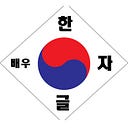Vikings. What do you think? Horned hats, terrifying shouts, barbarians and ruthless society?
But the Vikings actually had an ordered, structured life, with a complex political system and an organised society. How did the Viking leaders maintain such organisation? Through ‘Things’.
Yes, it’s a funny name and it sounds simple. But it’s part of an advanced system, a system that many scholars call the ‘first parliament’.
Follow me on a journey delving deeper into the first parliament meetings of the Vikings, the Things.
What were the Things
In the Things, laws were (re)stated, disputes were solved, criminals were judged, political decisions were made, and often held public religious rituals.
All free men could attend since it was a community meeting.
Although the Vikings had a primitive writing system, runes, they were never used for making laws and so they had to be transmitted orally. This was one of the most important parts of a Thing, where each law (new and old) were restated to the public, by the law speaker.
Things also served as a kind of courthouse. Instead of solving all disputes through family rivalries and violent duels, authorities would settle it with the attending community for advice. The local chieftain and the law speaker were the leaders of settling these disputes, but each free man of the community could also have a say. Disputes could also be settled through duels (holmgangs) or an objective third party to judge the dispute.
In these disputes, those who were guilty were punished. They were punished through a fine, declared semi-outlaw, or fully outlawed. However the authorities from the Things did not decide the sentence for the guilty person. Instead, the victim’s family chose how to carry out the sentence.
Before the adoption of Christianity, the main religion in the Viking age was the Norse religion. It was polytheistic (believed in many gods) and had various myths and rituals. Many rituals were performed publicly, and were hosted in the Things.
Types of Things
There are actually three types of Things, all with different roles and importance.
- The local Thing: this was like a council where the community would meet to create minor laws for the area and solve simple disputes
- The Thing: representatives from the local Thing would meet at the Thing to create important laws and disputes that couldn’t be solved at the local Thing
- Althing (National Thing of Iceland): this type of Thing only existed in Iceland and is where disputes and laws were finally settled at a national level
Some scholars interpret this system as one form of proto-democracy. Of course it isn’t modern democracy as it is today, but it is a foundation for modern politics and society.
Other things in the Things
As well as the more serious disputes and legal action, light-hearted things also took place in the Things. They often went for several days and there was a vibrant and festive atmosphere. Traders and merchants brought their goods and set up stalls. Marriages were arranged and alliances were found and nurtured. There was enough space for animal grazing ground, as well as access to fishing and hunting grounds. Brewers brought their barrels of ale and mead.
The Fall of the Things
As the Viking era progressed, the Things started to fade away. This was due to royal power becoming more centralised and assuming control and power over assemblies. Although the legal power of the Things were fading, disputes were still held there and continued to exist solely as courts.
Interestingly, many countries and legislations with Norse origins incorporate the name Thing in their parliaments.
- Alþingi- Icelandic ‘General Thing’ (Icelandic Parliament)
- Folketing- Danish ‘People’s Thing’ (Danish Parliament)
- Storting- Norwegian ‘Great Thing’ (Norwegian Parliament)
- Lagting- Åland ‘Law Thing’ (Ålandic [Swedish speaking region of Finland] Parliament)
- Løgting- Faroe Islands ‘Law Thing’ (Faeroese [territory of Denmark] Parliament)
- Landsting- Greenland ‘Land Thing’ (Greenlandic [territory of Denmark] Parliament)
- Tynwald; formally called Ting- Isle of Man ‘Thing Meadow’ (Manx [territory of the United Kingdom] Parliament)
These names are just hilarious for me, and it’s interesting to see the word ‘Thing’ still used in a modern context.
Final Words
So there we have it, folks! That’s the end of our journey through the Things of the Vikings. A vital role for the organisation and success of the Viking society. The first parliament in history that still has a role to play in the modern era.
Hope you enjoyed!
Luca
